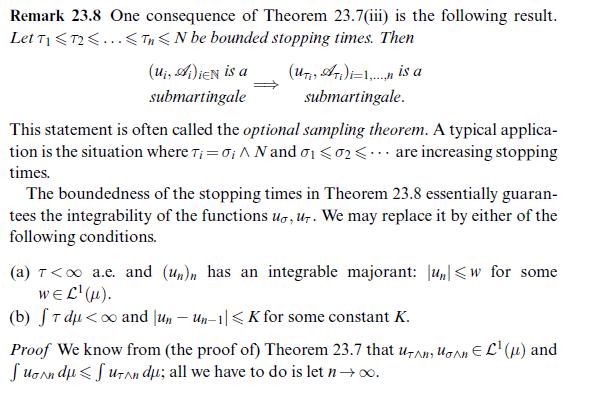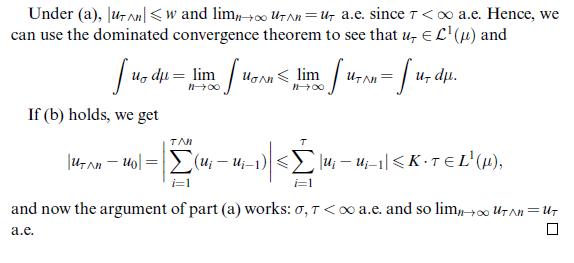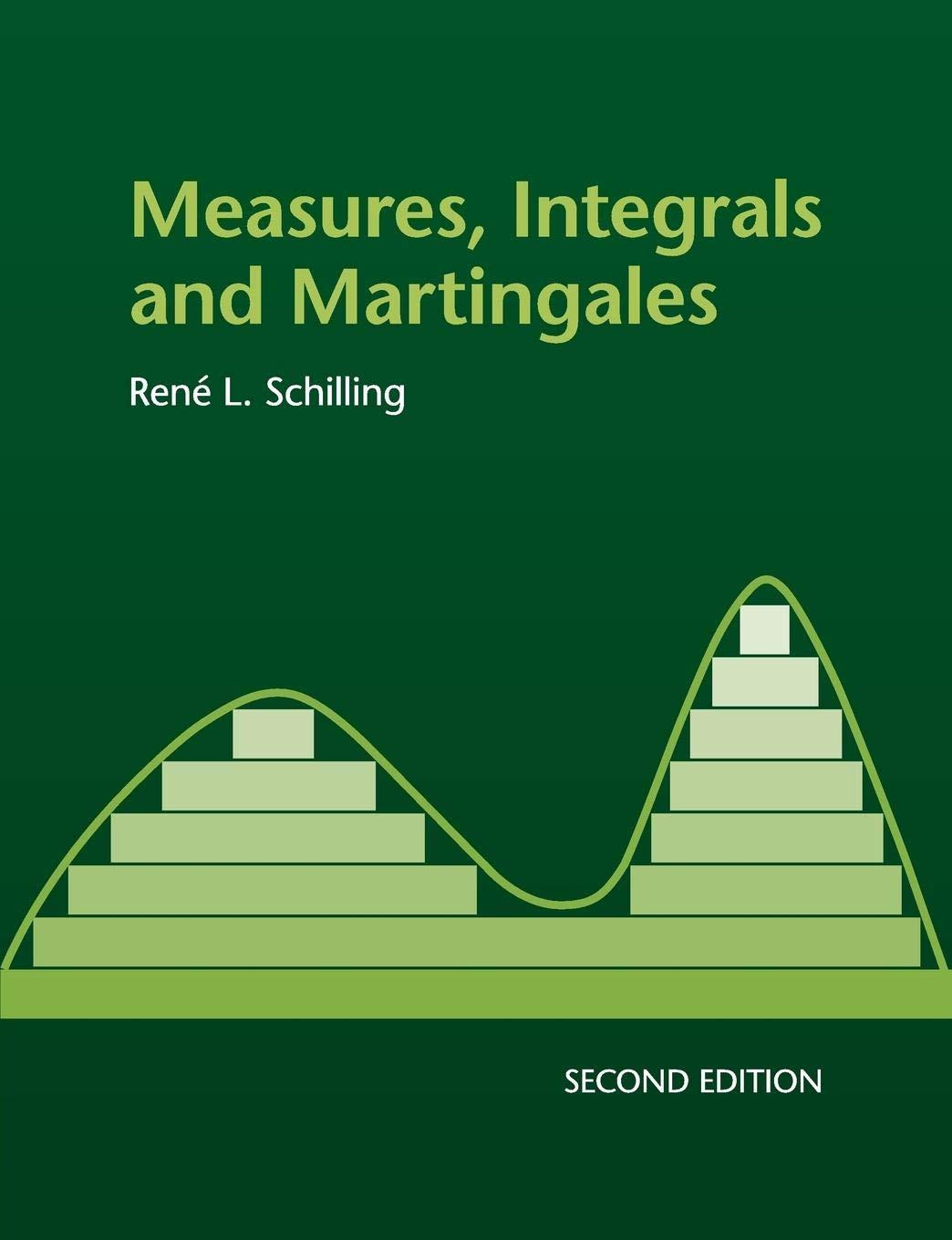Let ((Omega, mathscr{A}, mathbb{P})) be a probability space. (i) Let (left(varepsilon_{n}ight)_{n in mathbb{N}}) be a sequence of
Question:
Let \((\Omega, \mathscr{A}, \mathbb{P})\) be a probability space.
(i) Let \(\left(\varepsilon_{n}ight)_{n \in \mathbb{N}}\) be a sequence of independent identically Bernoulli \(\left(\frac{1}{2}, \frac{1}{2}ight)\)-distributed random variables with values \(\pm 1\). Show that for any sequence \(\left(y_{n}ight)_{n \in \mathbb{N}}\)
\[\sum_{n=1}^{\infty} y_{n}^{2}
converges a.e.
(ii) Generalize (i) to a sequence of independent random variables \(\left(\xi_{n}ight)_{n \in \mathbb{N}}\) with zero mean \(\int \xi_{n} d \mathbb{P}=0\) and finite variances \(\int \xi_{n}^{2} d \mathbb{P}=\sigma_{n}^{2}
\[\sum_{n=1}^{\infty} \sigma_{n}^{2}
converges a.e.
[ consider the martingale \(S_{n}=\xi_{1}+\cdots+\xi_{n}\) and use Problem 24.8 .]
(iii) If \(\left|\xi_{n}ight| \leqslant C\) for all \(n \in \mathbb{N}\), the converse of (ii) is also true, i.e.
\[\sum_{n=1}^{\infty} \sigma_{n}^{2}
converges a.e.
[ show that \(M_{n}:=\left(\xi_{1}+\cdots+\xi_{n}ight)^{2}-\left(\sigma_{1}^{2}+\cdots+\sigma_{n}^{2}ight)=: S_{n}^{2}-A_{n}\) is a martingale, use the optional sampling theorem from Remark 23.8 for \(M_{n}\) with \(\tau_{\kappa}:=\inf \{n\) : \(\left.\left|M_{n}ight|>\kappaight\}\), and observe that \(\left|M_{\tau \wedge n_{\kappa}}ight| \leqslant C+\kappa\) and that \(\int A_{\tau \wedge n_{\kappa}} d \mathbb{P} \leqslant(K+c)^{2}\).]
Data from remark 23.8


Data from problem 24.8
\(\mathcal{L}^{2}\)-bounded martingales. A martingale \(\left(u_{n}, \mathscr{A}_{n}ight)_{n \in \mathbb{N}}\) is called \(\mathcal{L}^{2}\)-bounded, if the \(\mathcal{L}^{2}\)-norms are bounded: \(\sup _{n \in \mathbb{N}} \int u_{n}^{2} d \mu
Step by Step Answer:






